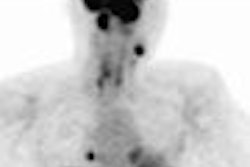Radioisotope maker Atomic Energy of Canada Ltd.'s (AECL) National Research Universal reactor in Chalk River, Ontario, will be offline for at least one more month, leaving hundreds of thousands of medical tests worldwide in jeopardy.
In announcing the shutdown, AECL said that additional, unplanned electrical work was needed to complete the upgrade of an electrical backup system to address a regulatory issue. The plant was expected to return to normal production by the middle of this month.
Chalk River supplies more than two-thirds of the world's radioisotopes for Canadian healthcare company MDS and its radioisotope developer MDS Nordion of Kanata, Ontario, which is responsible for about 50% of the world supply.
In a prepared statement, MDS Nordion said that the company is "concerned with the impact that AECL's supply disruption is having on customers and patients" and that MDS Nordion is "working closely with its backup supply network to mitigate the impact."
AECL's senior vice president and chief nuclear officer, Brian McGee, said in a release that the company "understands that patients will be impacted by this development and we are focused on completing the work procedures as quickly as possible.
Speaking with Auntminnie.com, SNM president Dr. Alexander J. B. McEwan described the continued downtime of the Chalk River facility as "a huge issue for the society and patients."
With almost 20 million nuclear medicine procedures performed each year -- most of which are technetium-99m-based studies -- the most adversely affected patients are those with at-risk cardiac and cancer conditions, which, McEwan said, require "a need for rapid intervention, appropriate diagnosis, and monitoring of therapy."
"It is a huge problem at whatever level you want to look at it," he continued. "The lost opportunities can cause misdiagnosis or missed appropriate management."
On a short-term basis there is little SNM can do to help relieve the shortage, McEwan conceded, adding that the situation is in the hands of technetium-99m suppliers, which are continuing to look for alternative sources.
The society is advising its members to consider using an alternative tracer -- thallium-201 -- instead of technetium-based tracers for cardiac imaging procedures. "Thallium-201 is a very effective cardiac imaging agent, so that is one alternative route," McEwan said.
SNM also has had internal discussions about the efficacy of bone scans for cancer patients using F-18 fluoride with PET.
As for SNM members' reaction to the shortage, McEwan said concerns remain that the nuclear medicine community did not receive warnings sooner about the state of the technetium supply, or lack thereof.
"The one thing we need to hope for is that alternative supplies can be found," he said. "Second, what alternative tests can substitute for tests that are now done with technetium agents? Thirdly, what can we do in the medium and long term to ensure this doesn't happen again?"
McEwan speculated that even if the Chalk River facility is back online in mid-January as anticipated, it will be mid-February before supplies reach sufficient levels again, given the time it will take to ramp up production to prior levels.
By Wayne Forrest
AuntMinnie.com staff writer
December 6, 2007
Related Reading
MDS Nordion divests two product lines, November 30, 2007
MDS Nordion signs cobalt-60 supply pact, October 19, 2007
MDS Nordion to help create molecular imaging center, June 5, 2007
Molecular imaging, nuclear medicine share spotlight at SNM 2007, June 4, 2007
MDS Nordion reports glitch in iodine-131 supply, April 20, 2007
Copyright © 2007 AuntMinnie.com




















